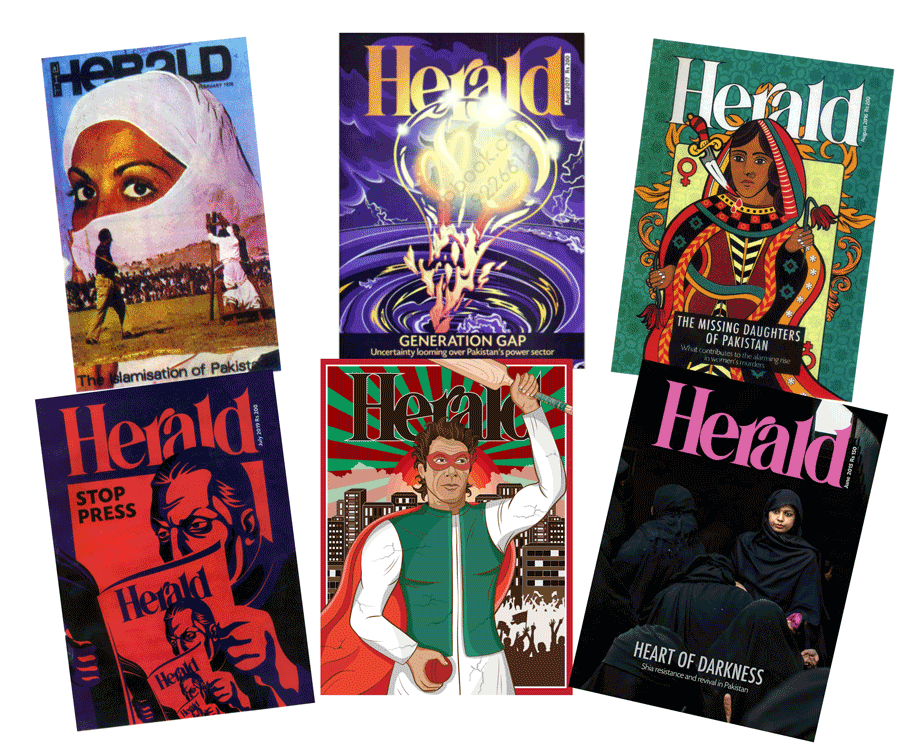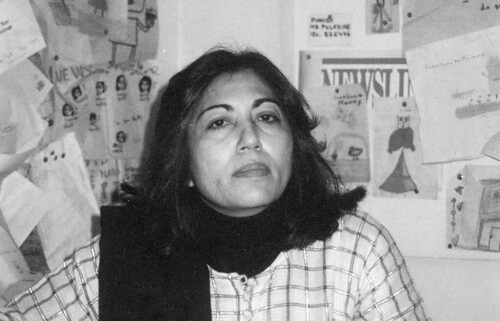The Life & Times of Herald
By Zohra Yusuf | Media | Published 6 years ago
My epitaph for the Herald would read:
“The Herald is dead. Freedom of the press must live on.”
The causes of the demise of Herald are many, the current state of press freedom being just one of them. However, pressures on the press did have a decisive impact on its fate. The monthly magazine’s well-being was inextricably linked with the financial health of the influential Dawn whose earnings subsidised Herald and other publications of the group almost all of which closed down, one by one over the years. It is no secret that Dawn had been facing the wrath of the powers-that-be even before the 2018 elections. The ante was raised with the coming into power of the PTI government, whose leader had his own axe to grind against Dawn and other critical voices in the media. With financial losses increasing, it became unsustainable for Dawn to continue supporting Herald.

The other defining cause is the twin attack of time and technology. This deadly digital onslaught on the print media has killed off many publications worldwide. The other tough truth is that monthly newsmagazines have lost their appeal. With the relative freedom that the press began to enjoy from the late ’80s onwards, investigative journalism no longer remained the exclusive domain of newsmagazines. Dawn, itself, has carried many courageous exposés in recent times. With the digital media substituting as a news channel for other media and the current short attention span of news consumers, the death of Herald was one that was foretold.
Although Herald saw a total of seven editors take charge during a life cycle of about 50 years, the imprint of Razia Bhatti was so strongly embedded that her association with the magazine never fully faded from the readers’ memory – even after she chose to end the association in 1988 and founded Newsline – and even after many editorial and design changes the magazine went through. Above all, the stamp of courage she left on the magazine remained an integral part of Herald’s editorial position on a range of issues and in its reporting.
The transition from The Illustrated Weekly of Pakistan to the monthly Herald was more than a change of name and frequency of publication. The Herald, in its reincarnation, was decisively a political newsmagazine that did not pack its punches and that is how it remained till the last issue of July 2019. Threats to its editors and reporters remained the norm most of the time and later survival became a constant challenge. Rumours of its demise began circulating last year and increasingly it became clear that its existence was in jeopardy.
 The greatest challenge to the magazine came not from the external powers but an internal setback in 1988, when the fiercely independent Razia Bhatti, on a matter of editorial difference with the management, decided to suddenly leave along with almost the entire editorial staff. It is to the credit of the late Ameneh Azam Ali, who had till then been contributing environmental reports to Herald, that she promptly stepped into the editor’s shoes and ensured undisrupted publication. She edited a few issues till Sherry Rehman took over as full-time editor. A feisty editor, Sherry found just the right kind of an editing partner in Talat Aslam. The duo complemented each other and published several groundbreaking special reports. Those on national elections were treasured by political historians as in one issue they were treated to analyses of constituencies and candidate profiles, as well as a forecast of electoral wins.
The greatest challenge to the magazine came not from the external powers but an internal setback in 1988, when the fiercely independent Razia Bhatti, on a matter of editorial difference with the management, decided to suddenly leave along with almost the entire editorial staff. It is to the credit of the late Ameneh Azam Ali, who had till then been contributing environmental reports to Herald, that she promptly stepped into the editor’s shoes and ensured undisrupted publication. She edited a few issues till Sherry Rehman took over as full-time editor. A feisty editor, Sherry found just the right kind of an editing partner in Talat Aslam. The duo complemented each other and published several groundbreaking special reports. Those on national elections were treasured by political historians as in one issue they were treated to analyses of constituencies and candidate profiles, as well as a forecast of electoral wins.
The special reports were collectors’ items. I have personally retained several and recall in particular the cover on elections 1990. Titled “The Awami Darbar,” it was illustrated in the style of a Mughal miniature, featuring the prominent leaders of the time. Apart from its aesthetics, it was a sharp comment on the politics of privilege and of dynasties. Other special reports that come to mind include the one on Pakistan’s 50th birthday in 1997. “Fifty Years. Fifty Questions” was an in-depth research that probed “What do Pakistanis Really Want?” interestingly, in this survey, 76% of those surveyed believed the present lot of generals (i.e. of the 90s) to be more corrupt than their predecessors and 51% supported a cut in defence expenditure.
In its heydays, the Herald became the pioneer of investigative reporting. Whether it was exposing environmental – or political – degradation, the magazine never flinched from naming and shaming those involved. It enjoyed a reputation of being hated by the high and mighty and wore this image as a badge of honour. Its sworn enemies included the country’s military dictators, General Zia-ul-Haq and Gen (R) Pervez Musharraf, as well as urban Sindh’s don, the MQM chief Altaf Hussain. It was dragged to courts several times, including once by Sindh’s notorious minister, Irfanullah Marwat, the son-in-law of Pakistan’s powerful president Ghulam Ishaque Khan. Prior to 1988, Zahid Hussain contributed incisive political analysis each month and with his move to Newsline this responsibility was ably taken up by Zaffar Abbas, the current editor of Dawn who had joined The Herald. Apart from brave editors, the magazine had the support of exemplary reporters throughout its existence.
The Herald was also a pioneer in editorial design. Imran Mir, the Dawn group’s in-house designer, found a tough customer in Razia Bhatti. It was only after many options were explored that the editor gave her nod to the masthead and the layout, sometime in the early ’80s. Although the layout has gone through several changes, the character of Herald‘s editorial design had been respected and retained, primarily by Creative Unit, headed by Tanaz Minwalla. And over the years, many good illustrators and designers were discovered to give brilliant visual reference to the news stories.
Just as with dear old friends who have led a full life, I will not mourn but celebrate the life and times of Herald. And salute its editors: Razia Bhatti, Ameneh Azam Ali, Sherry Rehman, Aamer Ahmed Khan, Saqib Hanif, Arifa Noor and Badar Alam, all of whom gave priority to freedom of the press above other interests.


